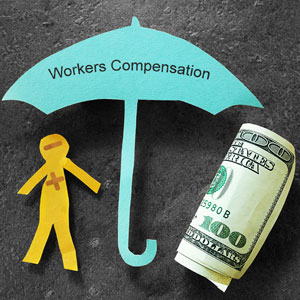If you have ever suffered a workplace or work-related injury, you know the struggle of trying to get the compensation you deserve out of your employer and their insurance through California’s workers’ compensation system. This article covers the essentials every employee or worker ought to know about workers’ compensation in California, including:
No matter what your job is, it is always possible to be injured in the line of work. As a result, it is a requirement for all employers to carry workers’ compensation insurance, with two notable categories of “permissibly uninsured” exceptions.
The main exceptions are government entities like CalFire or Caltran, which are legally uninsured. These employers rely on California’s compensation insurance fund, which is managed by a quasi-private state-owned insurance company.
The other category is massive companies, like Walmart, or Sierra Pacific, who self-administer their own workers’ compensation. They also post extremely large sums as bonds so the state can verify they are in a position to pay any injured workers.
This large number of private workers’ compensation insurance companies, combined with private and public permissibly uninsured employers, each of which has its own rules and procedures, is one key barrier between injured Californians and the help they need.
Another barrier that a workers’ compensation attorney can help you overcome is understanding the status you need to have to benefit from these various insurance options.
In order to be entitled to workers' compensation, you have to be an employee, with very few exceptions. Those exceptions exist for certain types of volunteer workers, who might sometimes be eligible as employees if they are injured while volunteering.
This can happen, for example, in certain church situations where some kinds of volunteers will be covered by workers' comp.
Other exceptions include many inmates in penitentiaries who are performing duties for which they are paid some nominal sum. They can end up being considered employees when injured on the job.
Both of these, however, are quite complex exceptions. If you believe you might fit in either category or if you are not sure if your injury counts as work-related, you should call an attorney and ask for guidance.
For an employee's injury to be eligible for compensation, it must occur both:
Each of these requires some additional explanation as they can get quite specific, and both are important.
Of the two conditions required for workers to be eligible for compensation, the timing is the easier one to define. In most instances, it simply requires that you be on the job.
Arising out of employment, however, is a condition related to what you were doing at the time of the accident or injury. You are only eligible for compensation if your injury was connected to your work.
Imagine two cases where someone is shot at their workplace. The first one was shot by a disgruntled lover, the second by would-be robbers. Only the second would be eligible for workplace compensation.
Home office trends aside, the vast majority of Californians commute to work one way or another. Given the dangers of our roadways, it is only natural to wonder if any injuries that occurred on the way to work can be considered eligible for workers' compensation.
Unfortunately, most of the time, the commute is not considered part of the employment relationship. Thus, with a few minor exceptions, you will not be able to claim workers’ compensation for injuries that occur during the commute.
There are some exceptions or debatable circumstances, such as:
If you haven't gathered by now that workers’ compensation is a complex field with lots of difficult niche cases and exceptional circumstances to take into consideration, then wait till we get to some of the situations that are, and are not, considered to be part of employment.
To get some idea of the complexity of the field of workers’ compensation, here are a number of interesting situations and examples in which the injured worker will or will not have the right to compensation for their injury.
If someone’s intoxication is the primary cause of their injury, then that can make them ineligible for compensation. For example, if you had a 0.2 blood-alcohol level and got in an accident while driving your delivery vehicle.
If you intentionally injured yourself or deliberately tried to cause your own death in the workplace, that can cause you to waive your right to workers’ compensation.
Similarly, if you were the aggressor in a fight, even if it is in the workplace, that is a felony, not an opportunity to try and get compensation.
There can also be exceptional injuries during “voluntary” recreational work events. For example, if someone shatters their knee playing basketball, but it was either expected or required that they play, it might be considered both in the course and scope of their work.
On the other hand, if they were foolishly playing at work and got injured during unsanctioned horseplay during their lunch break, they are not likely to be able to claim compensation.
While commuting is rarely considered part of work, traveling for work usually is. This might seem obvious when driving a delivery truck, but even if you are injured in your hotel after hours on a work trip, it could be considered eligible for workers’ compensation depending on the circumstances under the “commercial traveler” rule.
On the other hand, if you deviate from your planned itinerary or duties, you are unlikely to be eligible. For example, if you have been paid to the Bay Area to pick up a package, but on the way back, you take a detour of just fifty miles to visit a relative and are in a car accident. This might be called “on a lark of your own” and render your injuries ineligible even if you were technically then on your way back to work.
Overall, there are many complex and interlocking circumstances and conditions required to bring a successful compensation claim. While some workers’ compensation cases in California are straightforward, many will not be.
If you are injured at work, to ensure you get access to the full and fair compensation you deserve, it is vital you contact a specialized attorney as soon as possible.
For more information on Workers' Compensation Insurance In CA, an initial consultation is your next best step. Get the information and legal answers you are seeking by calling (530) 287-6674 today.

